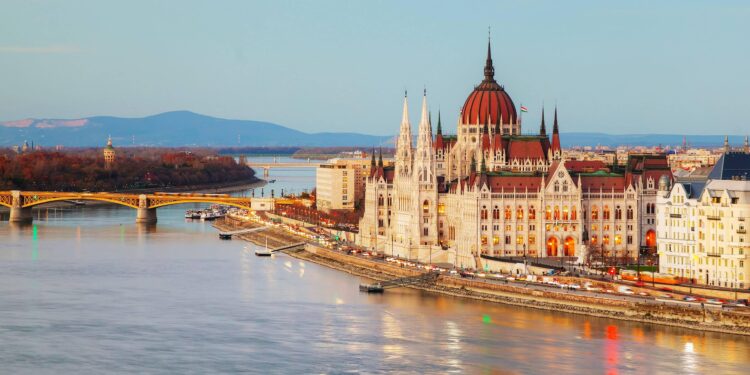Hungary and Slovakia have expressed growing concerns over potential disruptions to their oil supplies following a recent Ukrainian strike on a key Russian pipeline. The attack, which targeted critical infrastructure, has sparked fears of oil cuts in these Central European countries heavily reliant on Russian energy. As tensions escalate in the region, both nations are closely monitoring the situation amid uncertainties over the stability of their energy sources.
Hungary and Slovakia Brace for Potential Oil Supply Disruptions Amid Pipeline Attack
Following a recent attack on a critical Russian pipeline, both Hungary and Slovakia are preparing for possible disruptions in their oil supplies. The pipeline, which channels a significant portion of Russian crude oil into Central Europe, has sustained damage causing concern among energy officials. Governments in Bratislava and Budapest are reportedly coordinating emergency measures to mitigate potential shortages, emphasizing the urgency of diversifying their energy sources amid escalating geopolitical tensions in the region.
Key responses include:
- Increased stockpiling: Both countries are accelerating storage fills to buffer against immediate supply gaps.
- Exploring alternative routes: Discussions are underway to secure oil deliveries through different pipelines and maritime channels.
- Engagement with EU partners: Seeking solidarity and joint action plans within the European Union to maintain energy stability.
| Country | Daily Oil Import (barrels) | Emergency Reserves (days) | Alternative Plans |
|---|---|---|---|
| Hungary | 80,000 | 30 | Rail and truck shipments from Adriatic ports |
| Slovakia | 40,000 | 25 | Negotiations for Baltic pipeline access |
Analyzing the Geopolitical Impact of the Ukrainian Strike on Russian Energy Infrastructure
The recent Ukrainian strike on Russian energy infrastructure has sent shockwaves across Central Europe, particularly alarming Hungary and Slovakia. Both countries, heavily dependent on Russian oil supplies, now face potential shortages that could disrupt their energy security and economic stability. The attack underscores the vulnerability of critical pipelines that traverse politically sensitive regions, highlighting how energy routes can quickly become leverage in broader geopolitical conflicts. Governments in Budapest and Bratislava have already begun emergency consultations to assess the immediate impact on fuel supplies and explore alternative sources to mitigate any impending crisis.
Energy analysts warn that the repercussions extend beyond supply disruptions, potentially reshaping alliances and triggering a realignment in regional energy politics. The incident amplifies concerns about Europe’s reliance on Russian hydrocarbons amid the ongoing conflict in Ukraine. Below is a simplified overview of the affected countries and their Russian oil dependency, emphasizing the urgency for diversification:
| Country | Russian Oil Dependency (%) | Annual Oil Consumption (million barrels) |
|---|---|---|
| Hungary | 65% | 90 |
| Slovakia | 70% | 45 |
| Czech Republic | 55% | 60 |
- Immediate risks: Pipeline damage causing supply halts
- Long-term impact: Accelerated shift towards renewable energy sources
- Geopolitical pressure: Increased negotiations for alternative crude suppliers
Strategies for Central European Nations to Mitigate Risks from Energy Supply Volatility
Central European nations like Hungary and Slovakia are urgently exploring diversified energy sourcing to shield their economies from the repercussions of sudden supply disruptions. Prioritizing energy partnerships beyond traditional Russian channels, governments are increasingly investing in renewable projects and negotiating import agreements with alternative suppliers such as Norway and Algeria. Simultaneously, boosting domestic energy efficiency and upgrading infrastructure to better integrate renewable sources remain critical to reducing dependency on volatile external supplies.
In addition to diversification, regional cooperation is emerging as a key strategy to enhance energy security. Through strengthened cross-border grids and shared storage facilities, countries in Central Europe aim to create a buffer against abrupt oil or gas shortages. Below is a summary of primary strategies being adopted:
| Strategy | Key Focus | Expected Impact |
|---|---|---|
| Diversified Import Routes | Alternative suppliers, LNG terminals | Reduced single-source risk |
| Renewable Energy Expansion | Wind, solar projects | Lower fossil fuel reliance |
| Regional Grid Integration | Cross-border interconnections | Improved energy sharing |
| Energy Efficiency Investments | Modernization, demand management | Decreased overall consumption |
Final Thoughts
As tensions escalate in the region, Hungary and Slovakia remain on high alert over potential disruptions to their energy supplies following the Ukrainian attack on the Russian pipeline. Both countries are closely monitoring developments, aware that any prolonged interruption could have significant economic and political ramifications. The incident underscores the fragile nature of energy security in Eastern Europe amid ongoing geopolitical conflicts, leaving experts and governments alike questioning the stability of critical infrastructure in the months ahead.
















